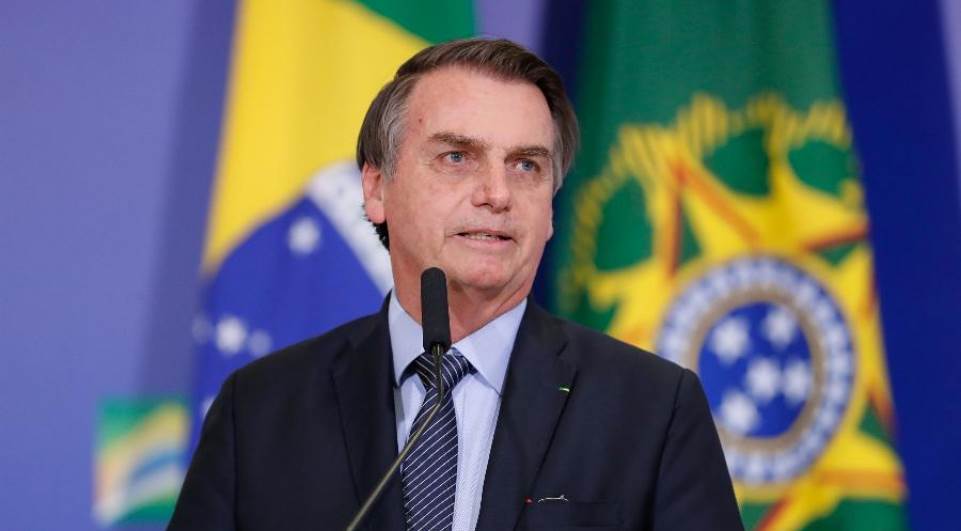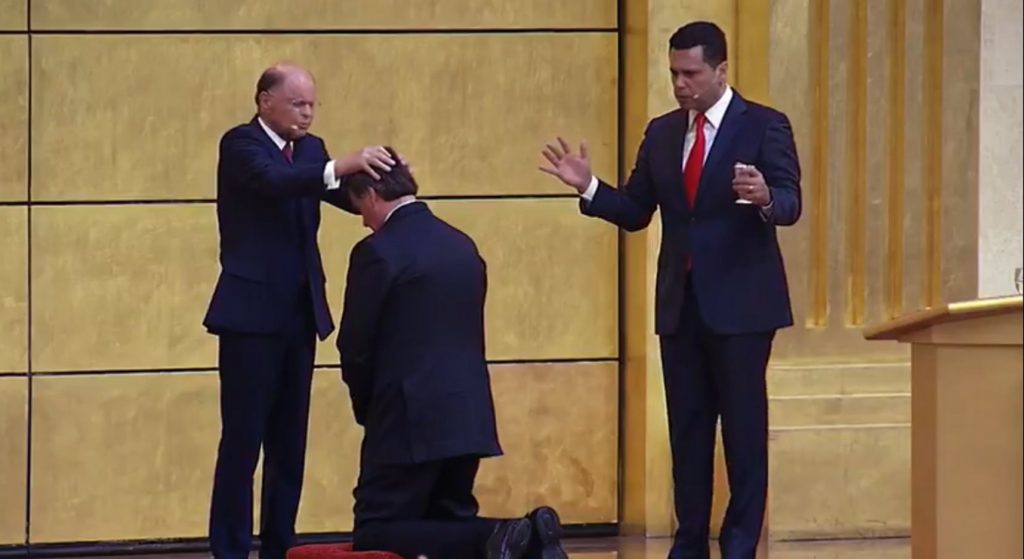RIO DE JANEIRO, BRAZIL – Faced with a declining popular assessment, with an impact even in sectors identified as pro-Bolsonaro, the President began to draw even closer to Evangelicals and their leaders.

Regarded as one of the pillars of his support base, the religious group is the president’s gamble to avoid an increase in social rejection, to shield himself from retaliation in Congress and to catapult himself into a dispute for re-election.
At breakfast with Folha de S.Paulo last Tuesday, September 3rd, Bolsonaro said that it is necessary to dialogue with Evangelicals more and more. “Bring them closer”.
The president has been pointing to the nomination of evangelicals for public office, granting tax benefits to Christian temples, overseeing projects that strengthen the morality crusade and considering the appointment of a clergyman to the vice-presidential position in 2022.
In an attempt to avoid a tax package for religious temples, evangelical legislators invited the president to lunch at the home of federal deputy Silas Câmara last month.
During the meeting, he engaged in a conversation with a group of legislators, in which he analyzed the upcoming presidential elections. “Any politician who has any sense knows that the 2022 policy involves the evangelical movement,” said Bolsonaro, according to three deputies present.
In the past month, Bolsonaro’s popularity has eroded. The most recent Datafolha survey showed a 33 percent to 38 percent increase in disapproval of his administration, with a loss of support among the wealthiest and the better schooled.
The rate of voters who regard the government as bad or terrible is, however, much lower among Evangelicals than among other religious groups. Among them, 27 percent disapprove, while among Catholics it is 42 percent, among spiritists 46 percent, and 56 percent among followers of Afro-Brazilian religions.
Last week, the president asked the deputy and pastor Marco Feliciano to submit a list of evangelical leaders. He invited them to be at his side on the official platform during the Sete de Setembro (“September Seventh” – Brazilian Independence Day) parade along Brasília’s Ministerial Esplanade on Saturday, September 7th.
Among others, Edir Macedo (Universal Church), Renê Terra Nova (Movimento Internacional da Restauração Church), Robson Rodovalho (Sara Nossa Terra Church) and Manoel Ferreira (Assembleia de Deus Church) were called.

“He wanted to praise the evangelical movement because we have an audience. You bring the pastors and the sheep come along,” said Feliciano, who has built the president’s link with the religious bench. “Our support is endemic, not systemic,” he said.
The evangelical segment represents, as shown in Datafolha research, 29 percent of the Brazilian population, a percentage that has been growing year after year. With the expansion of religion, São Paulo has gained 2,433 new churches in 25 years, as reported by Folha on Thursday, September 5th.
This year, the evangelical parliamentary front stepped up in relation to the last legislature, going from 84 to 112 members, and has become the main shield of the president in the legislative branch, given the fact that he has not set up a political party support base.
To maintain loyalty, Bolsonaro has waved more and more conservative flags. He recently stood up against the criminalization of homophobia, for instance, and last Tuesday, September 3rd, announced that he had asked the Ministry of Education for a project against “gender ideology” in primary education.
In parallel to this trend, he has promised to increase the number of evangelicals in public positions. The president currently has five religious representatives on his ministerial team and also intends to appoint evangelicals to a position in the Federal Supreme Court (STF) and to the post of director-president of the National Film Agency (ANCINE).
In the financial field, Bolsonaro has also been generous. Since the beginning of his term, Evangelicals have been served by at least two measures adopted by the Federal Treasury that benefit religious temples.
In June, a normative instruction exempted religious organizations establishments “that do not have administrative independence or that are not budget managers” from registering with the National Register of Legal Entities (CNPJ).
According to evangelical leaders, this mainly affects open temples in communities where there is little state presence and more difficulty in gathering the necessary documents for registration with the CNPJ, allowing the worship venues in these locations to function as branches of a larger temple.

In a further decision, in May, the total amount of revenues, donations, and contributions was increased, from which legal entities that are “immune and exempt” are required to submit tax accounting records.
Previously, the ceiling for dispensing with such bookkeeping was R$1.2 million (US$300,000). Under the new ordinance, the amount was increased to R$4.8 million.
The president declares himself Catholic and his wife, Michelle Bolsonaro, evangelical. Since July, he has been attending an evangelical church once a week on average, such as the ‘Templo de Solomão’ in São Paulo and the ‘Sara Nossa Terra’ in Brasília.
He was the first president to take part in the March for Jesus and has already granted the evangelical benches the legal structure of the Executive Power so that they may enable proposals by means of presidential decrees.
“You have wonderful ideas that you can solve by decree,” he said. “These small measures have an enormous reach in Brazil and bring the population into our side,” he added.

